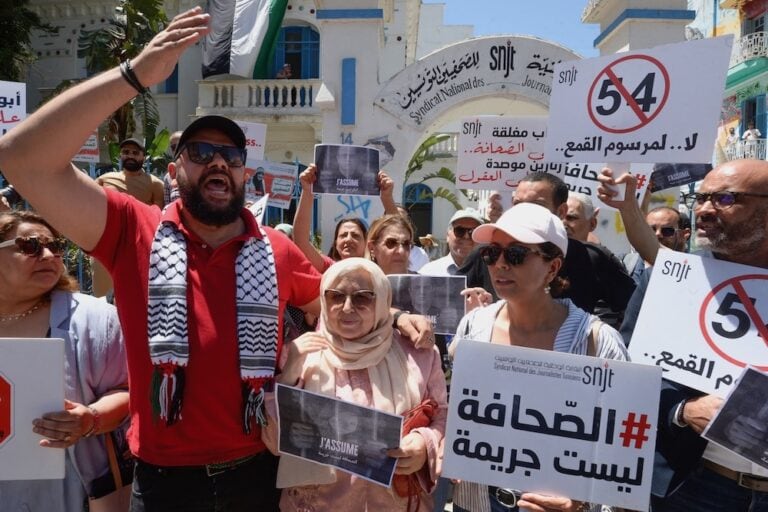ARTICLE 19 calls on the government to make use of the UNESCO World Press Freedom Day event held in Tunis as a golden opportunity to advance the media reform package.
(ARTICLE 19/IFEX) – On UNESCO World Press Freedom Day on 3 May 2012, which is to be held for the first time in Tunisia, ARTICLE 19 warns that the Tunisian government has failed to implement the key media reforms initiated in the first year of the country’s transition to democracy. The current legal framework, ARTICLE 19 emphasises, lacks the clarity and specificity required to meet the basic requirements of the rule of law.
ARTICLE 19 therefore calls on the Tunisian government to make use of the May 3rd event as a golden opportunity to advance the media reform package, which was kick-started by the transitional government through the implementation of Decrees 41, 115 and 116.
THE POST-BEN ALI REFORMS
A free and independent media is essential to the development and sustainability of a vibrant democracy, and integral to realising the public’s right to a diversity of information and viewpoints. The media reforms, initiated by the transitional government in the aftermath of the revolution, replaced Tunisia’s arsenal of repressive media laws, including the 1975 press code. The reforms included legislative decrees 2011-41, 2011-115, and 2011-116:
Decree 2011-41 (as amended by Decree 2011-54) concerning access to administrative documents marked the beginning of a new culture of transparency which should have taken immediate effect
Decree 2011-115 (also known as the new press code) heralded a new chapter in Tunisia’s media freedom history by guaranteeing the protection of journalists from harassment and abolishing prison sentences for criminal defamation and a number of other speech offences. Decree 115 supersedes any previous and relevant provisions or laws, especially the 1975 press code.
Decree 2011-116 laid the ground for a newly independent broadcasting media with the creation of the Independent High Authority for Audiovisual Communications (also known by its French acronym ‘HAICA’).
The formal adoption of Decree 41 on 31 May 2011, and of Decrees 115 and 116 on November 2, 2011, as highlighted by their publication in the official gazette, sent a welcome and clear message that Tunisia was rolling back the regime of censorship and secrecy that were the hallmarks of the Ben Ali era. It also signaled the country’s commitment to democracy and as such, these laws have been widely regarded by the international community as among the key achievements of the revolution to date.
At the same time, ARTICLE 19 has repeatedly stressed that those decree laws do not go far enough. More comprehensive media reforms are needed to bring Tunisia fully in line with its international obligations under international human rights law.
THE SITUATION SINCE NOVEMBER 2011
Following the adoption of Decrees 41, 115 and 116, it was then incumbent upon the newly elected government to respect the media laws adopted by the transitional government, including by implementing those provisions that require government action, in particular the establishment of the HAICA to regulate broadcasting.
Instead, the last 5 months have witnessed a succession of contradictory statements and actions on the part of the authorities, with a number of negative results:
Legal uncertainty, including among the judiciary, which undermines respect for the rule of law and access to justice, and contradicts the goals of the Tunisian revolution, just one year old;
Delay of centrally important reforms for Tunisia’s democratic transition including the introduction of administrative procedures for access to information and the establishment of an independent regulatory body for broadcasting;
Confusion amongst media stakeholders, which also slows down Tunisia’s democratic transition, risks having an adverse effect on freedom of expression and may discourage investment in media development.
(. . .)


